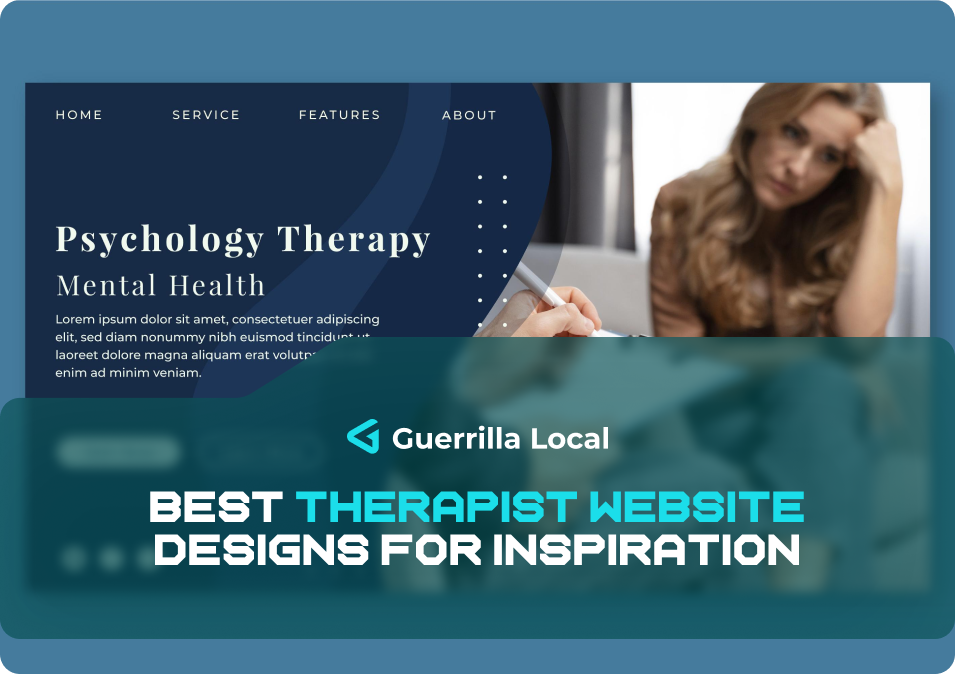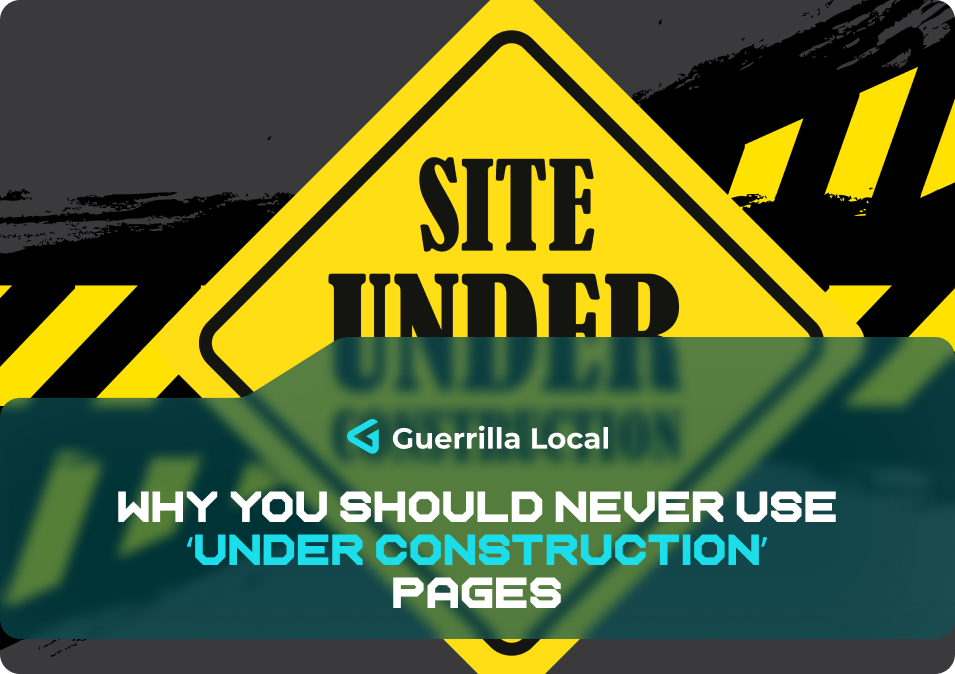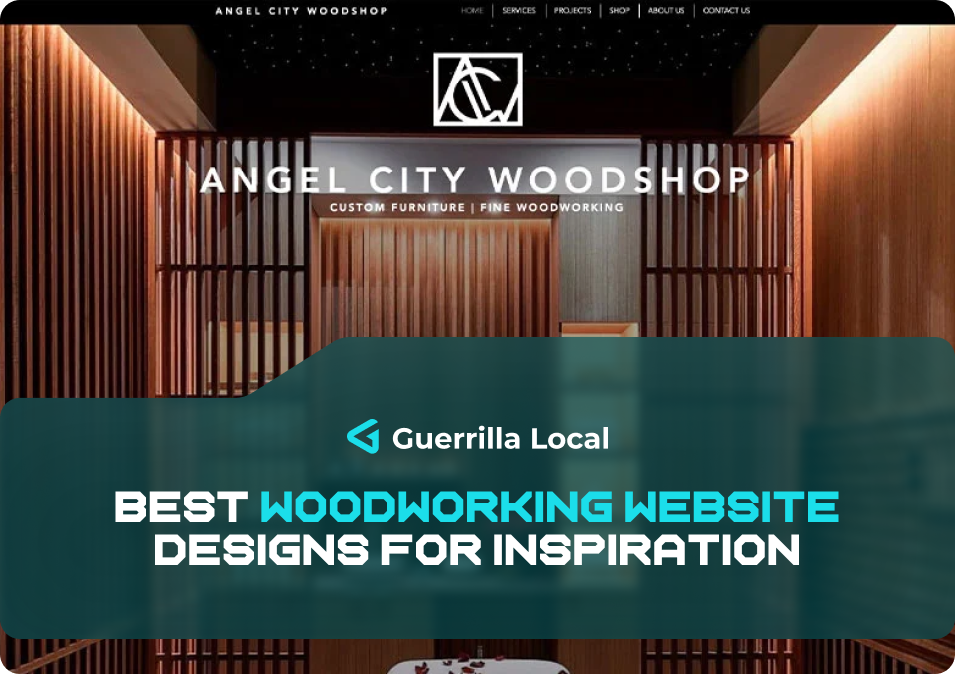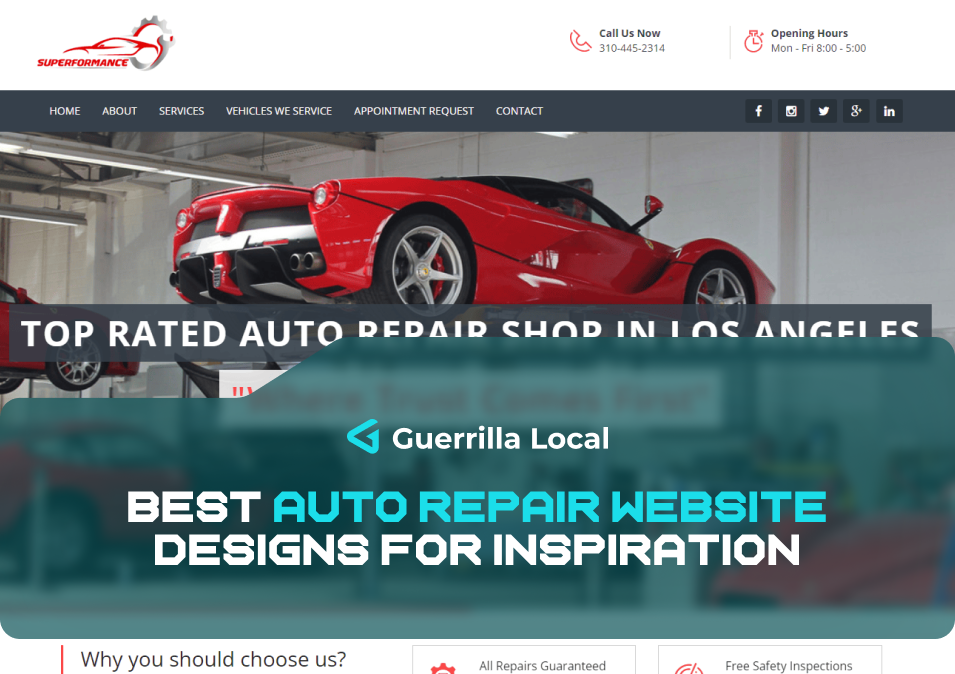Revolutionize your online presence with the ultimate therapist website designs! Unleash the power of captivating layouts and boost your practice to new heights.
Table of Contents
Elements of a Successful Therapist Website
User-Friendly Design
A user-friendly design is the cornerstone of an effective therapist website. It ensures that visitors can navigate the site effortlessly, finding the information they need without frustration. A clean and intuitive layout contributes to a positive user experience.
Clear Navigation
Clear navigation is crucial for guiding visitors through the website seamlessly. Intuitive menu structures and well-organized content enhance user satisfaction and encourage them to explore further.
Mobile Responsiveness
In an era dominated by mobile devices, ensuring that a therapist’s website is mobile-responsive is imperative. A responsive design guarantees a consistent and user-friendly experience across various devices, catering to a diverse audience.
The List of 35 Best Therapist Website Designs for Inspiration
1. SR Psychological Services
The website of SR Psychological Services sets a benchmark for therapist websites. Visually pleasing photos, a consistent color scheme, and beautiful fonts contribute to a professional and inviting atmosphere. The use of professional iconography and a clear call-to-action button ensures a seamless user journey.
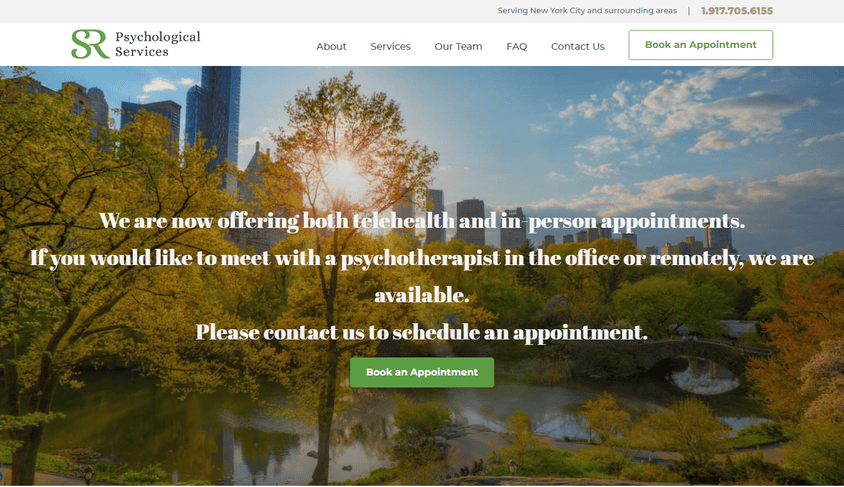
2. Sian Quipp
Sian Quipp’s counseling services website excels in its use of color, creating a visually appealing and calming atmosphere. Large whitespace enhances readability, and social proof through testimonials and reviews adds a layer of trust. Logos of professional affiliations further establish credibility.
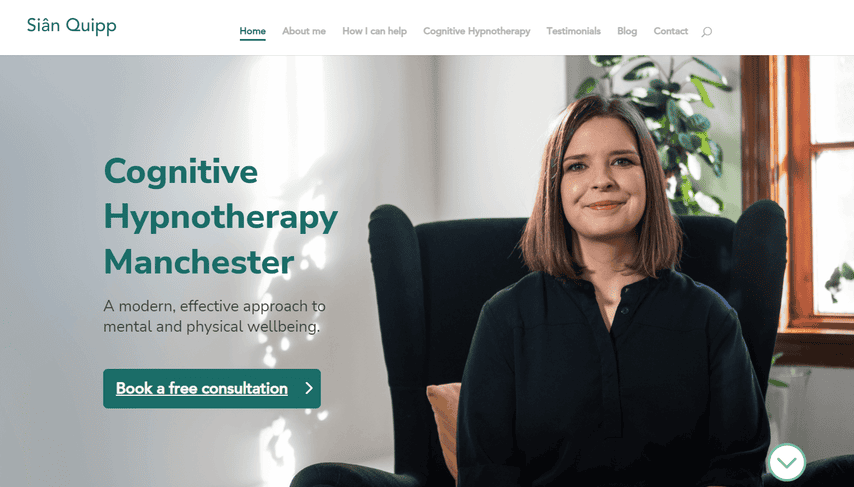
3. L’espace Clinique de Psychologie
This therapist website stands out with its modern layout and section movement effects. The strategic use of negative space, alternating full-width images with solid blocks, and trendy fonts contribute to a chic and trendy design that captivates the audience.
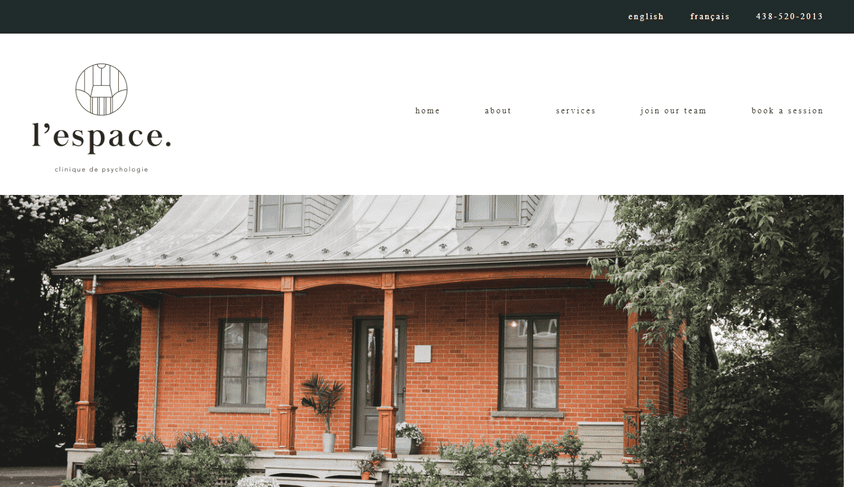
4. Rebecca Newton LMFT
Rebecca Newton’s counseling website focuses on the therapist and her work. Consistent and well-blended use of colors, effective negative space utilization, and a unique layout make it an excellent example of a marriage and family therapist’s online presence.
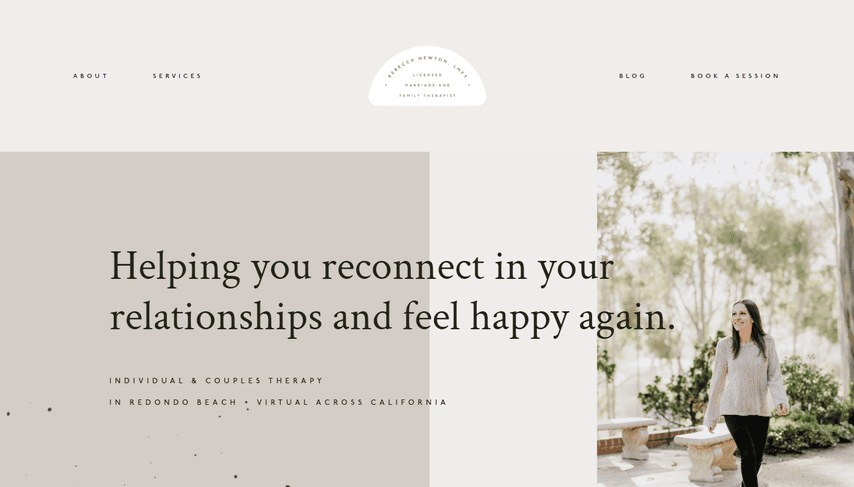
5. Alexandria Art Therapy
Alexandria Art Therapy’s website combines professionalism with a friendly touch through artistic design elements. Custom fonts for headings, informative footers, and large, full-blown sections showcasing their counseling services and therapists create an engaging experience.
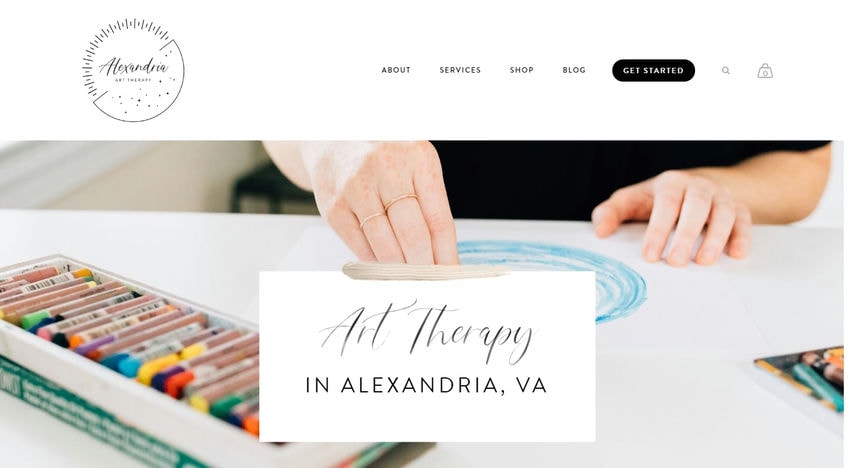
6. Anna Salumbides
Anna Salumbides’ therapist website stands out with high-quality images, a unique heading, readable content fonts, and personalized hand-drawn design elements. E-commerce integration and a clear statement of purpose add to the overall effectiveness.
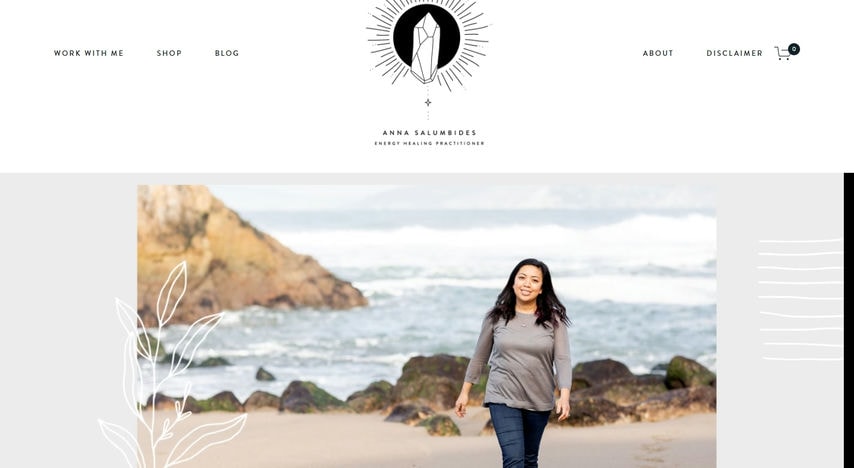
7. Bloom Counseling
Bloom Counseling’s website uses big and bold heading fonts, large rounded buttons, and well-contrasting colors. The feminine theme is consistent throughout, creating a visually appealing and cohesive online presence for mental health services.
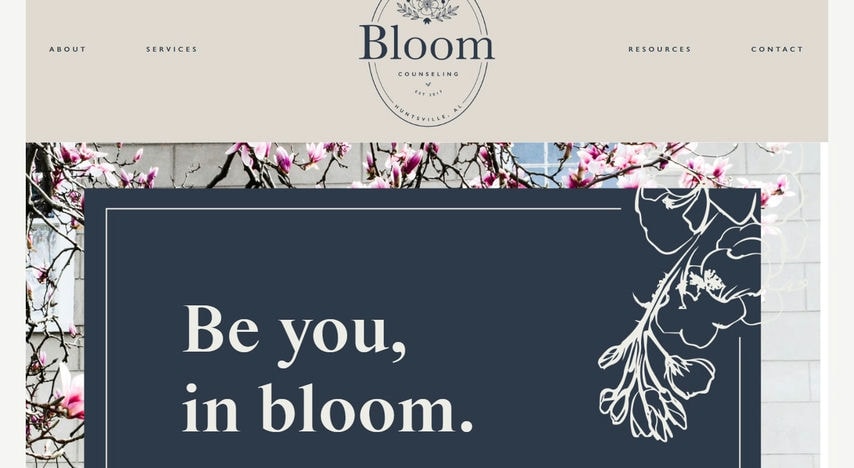
8. Transformative Coaching
Transformative Coaching’s therapist website strikes a balance between professionalism and playfulness. Curved design elements, serif fonts, text container overlays on images, and effective use of whitespace contribute to a visually engaging and readable website.
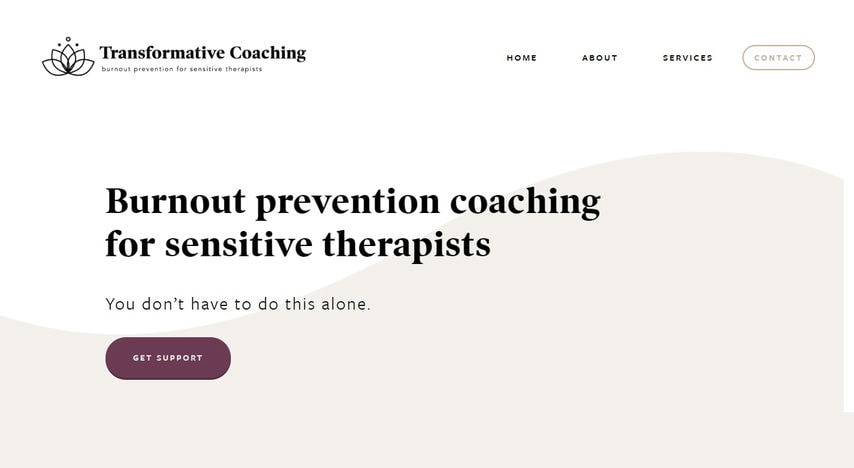
9. Rehab Dynamics Physical Therapy
Rehab Dynamics’ website excels with clear text, prominent call-to-action buttons, and the use of social proofs with actual photos and testimonials. The friendly and bright color scheme, coupled with a comprehensive footer, makes it an ideal therapist website.
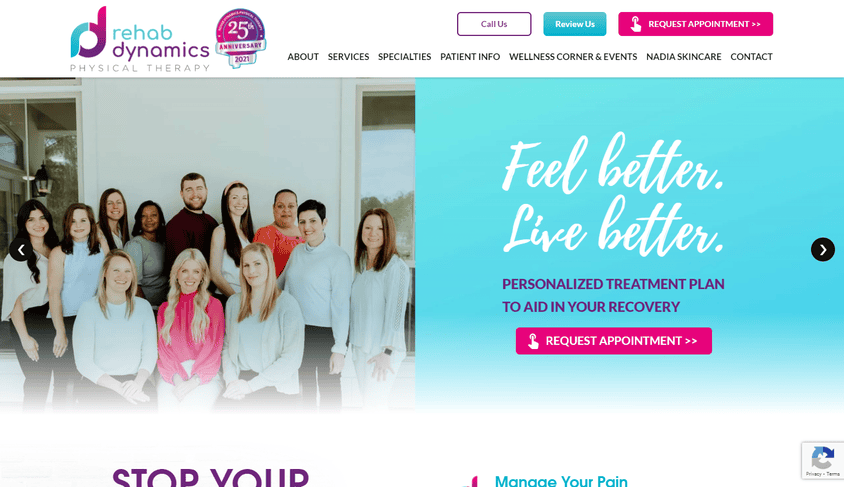
10. Bryant Orthopedic & Sports Physical Therapy
Bryant Orthopedic’s therapist website stands out with its easy-to-understand layout, consistent color scheme, large fonts, and icons. The visible call-to-action buttons and the powerful use of client testimonials contribute to a user-friendly experience.
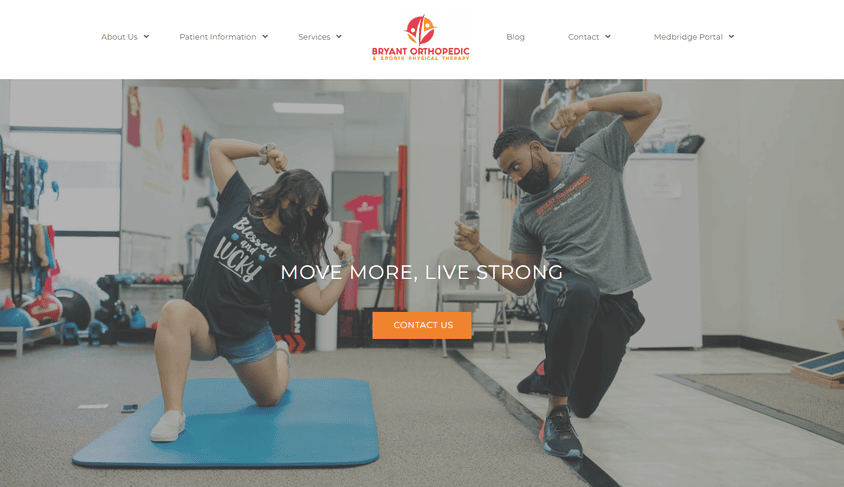
11. World Physiotherapy
World Physiotherapy’s website stands out with a modern web design compared to its counterparts. The animated impact section emphasizes the company’s capabilities, coupled with large and easy-to-read content fonts. The incorporation of a mission statement and intuitive menus enhances the overall user experience.
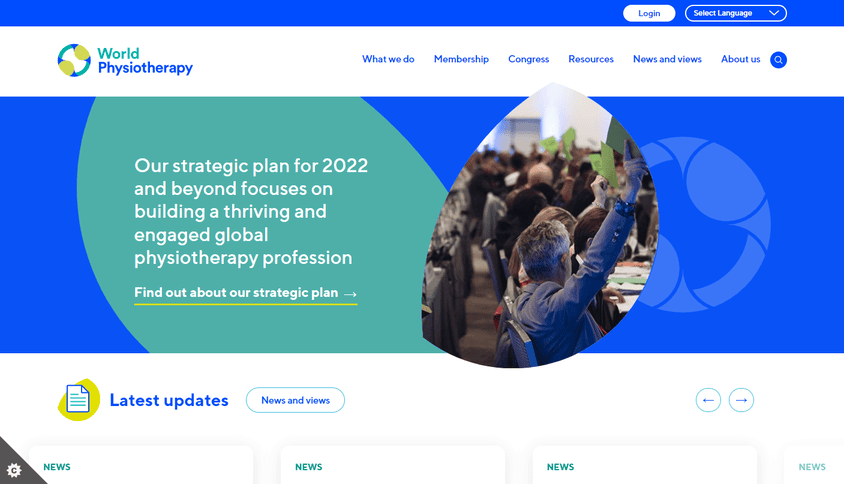
12. ATI Physical Therapy
ATI Physical Therapy’s website is characterized by big and bold headings, maintaining an effective and consistent red and black color scheme. The use of actual photos of people and facilities, along with quality client and therapist images, adds authenticity. Updated content and informative inner pages contribute to a compelling online presence.
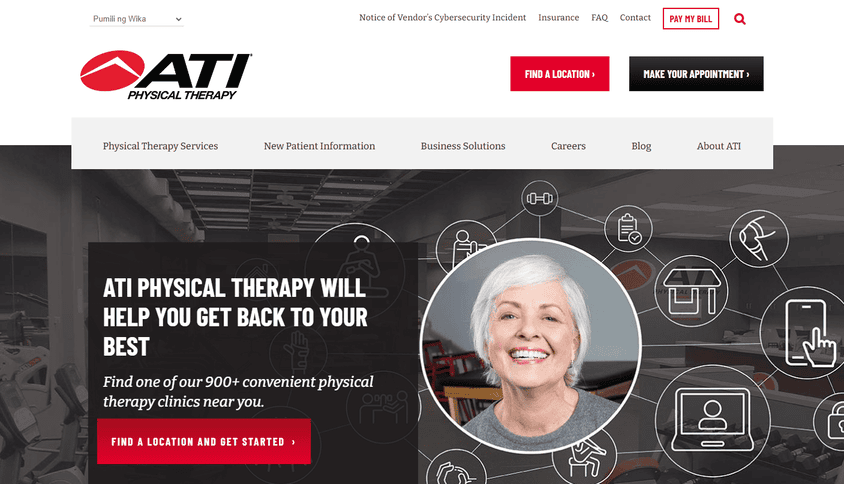
13. Cappino Physiotherapy and Wellness Clinic
Cappino Physiotherapy excels in providing a virtual tour of their facilities, using custom web design graphical elements, and ensuring uniformity in team photos. The informative content on blog posts enhances the user experience, offering potential clients valuable insights into their services.
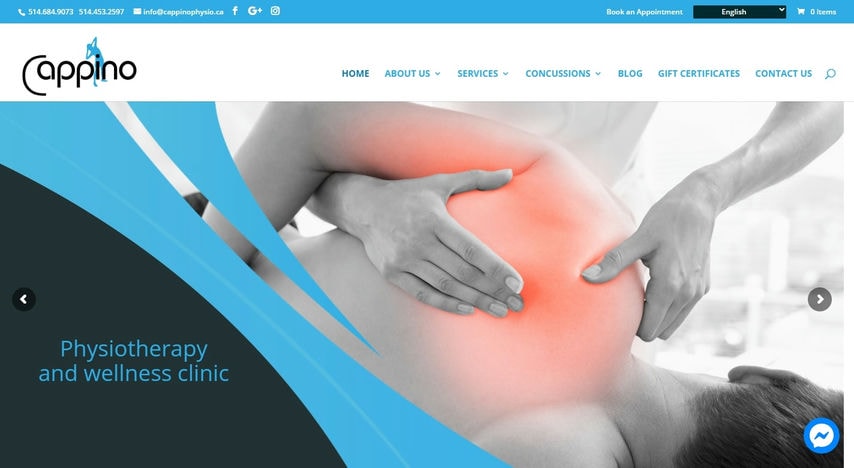
14. Physiotools
Physiotools’ website features a visually appealing header and navigation section, making excellent use of negative space. The inclusion of a language options dropdown caters to a diverse audience, enhancing accessibility. The seamless integration of a shopping cart adds convenience for users interested in their services.
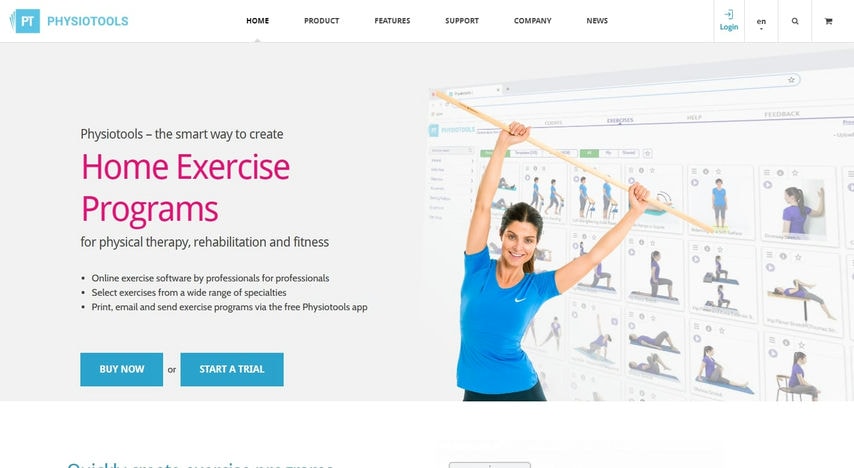
15. Shirley Ryan Ability Lab
Shirley Ryan Ability Lab’s website employs bolder and larger fonts strategically, using icons for visual appeal and contrast. The strong utilization of whitespace enhances readability, and inclusive photos promote diversity. Award logos contribute to building trust in this exceptional therapist website.
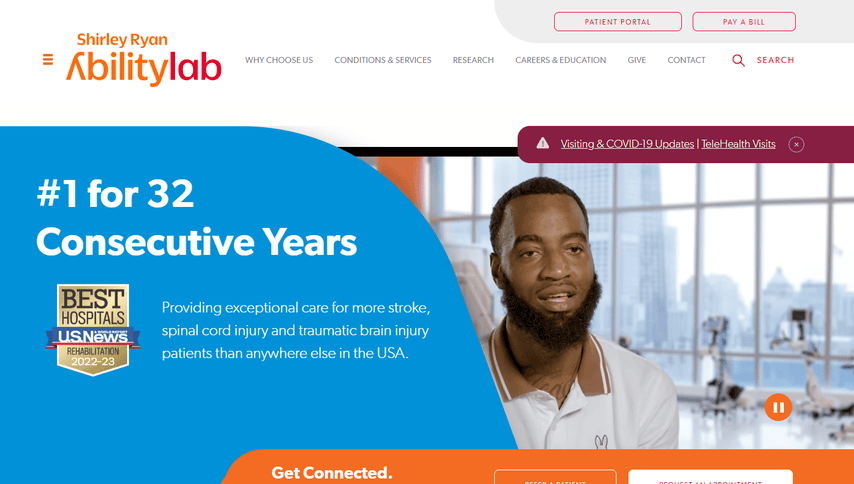
16. SwimEx
SwimEx’s therapist website adopts big fonts for easy readability and utilizes photos and videos to showcase their services. The use of ghost buttons for call-to-action areas and bright colors strikes a playful yet professional balance, creating an engaging online presence.
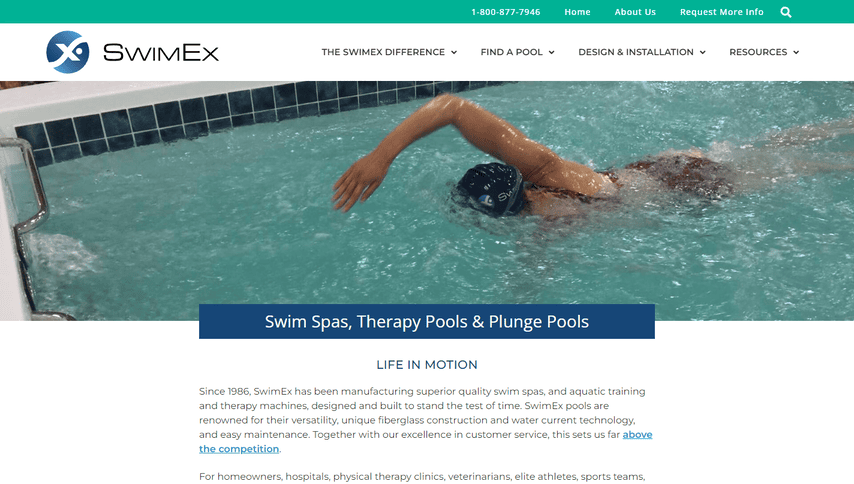
17. Southern California Counseling Center
This counseling center’s website stands out with a unique image treatment throughout, seamlessly mixing illustrations with photos. The visible navigation and call-to-action buttons, along with consistent color palette application, contribute to a visually appealing and user-friendly experience.

18. Thriveworks
Thriveworks’ counseling website prioritizes clear and concise call-to-action buttons, utilizing forms for appointment bookings and information requests. The inclusion of client testimonials and a chatbot function adds credibility and user engagement.
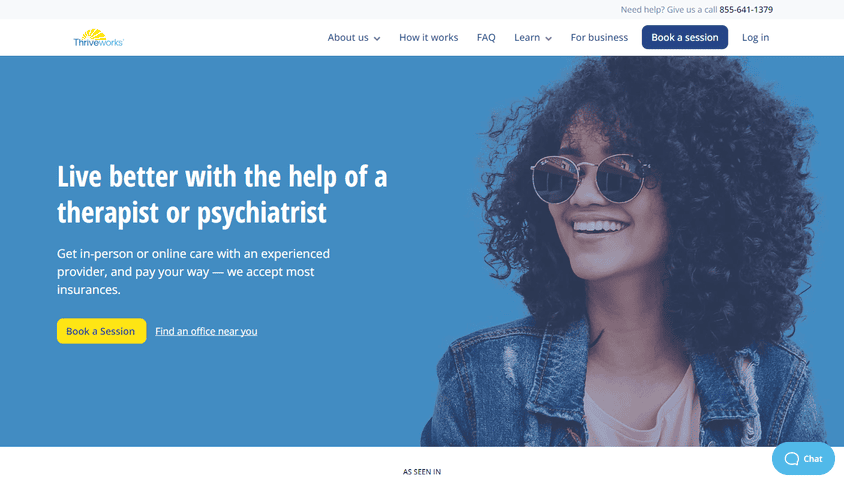
19. Couples Learn
Couples Learn’s modern look, engaging layout, and focus on therapists, highlighted by smiling portraits, set it apart. The use of large and rounded buttons with rounded corners ensures accessibility, making counseling services easily navigable.
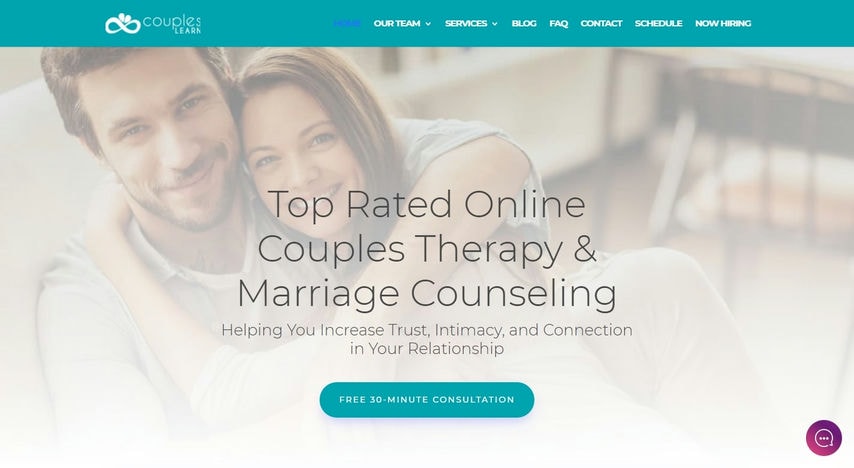
20. Individual & Relationship Therapy Center
This therapy center’s website features quality photos and alternating dark and light sections for content organization. Large call-to-action buttons, contact information, and location map visibility on all pages enhance user experience, presenting family therapy, individual therapy, and couples counseling prominently.
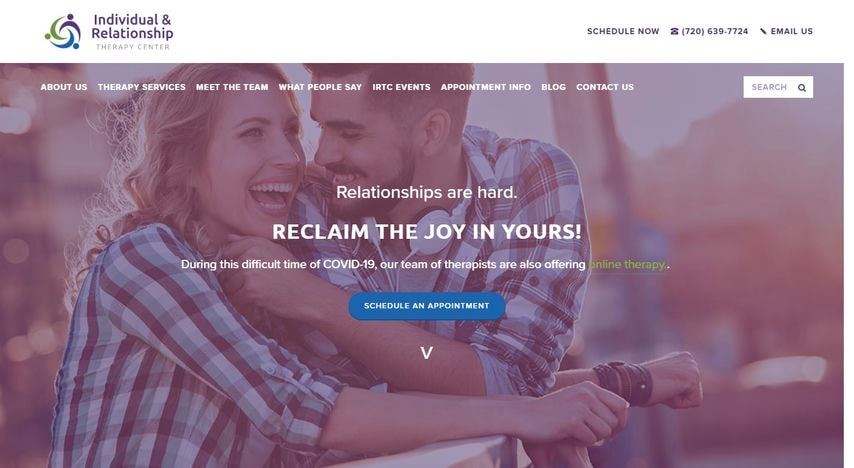
individualrelationshipcenter.com
21. Millennial Life Counseling
Millennial Life Counseling’s modern web design focuses on content, displaying photos of the target market – millennials. Gradient colors add a youthful vibe, and large, easily seen call-to-action buttons, along with the inclusion of a blog, showcase expertise to potential clients.
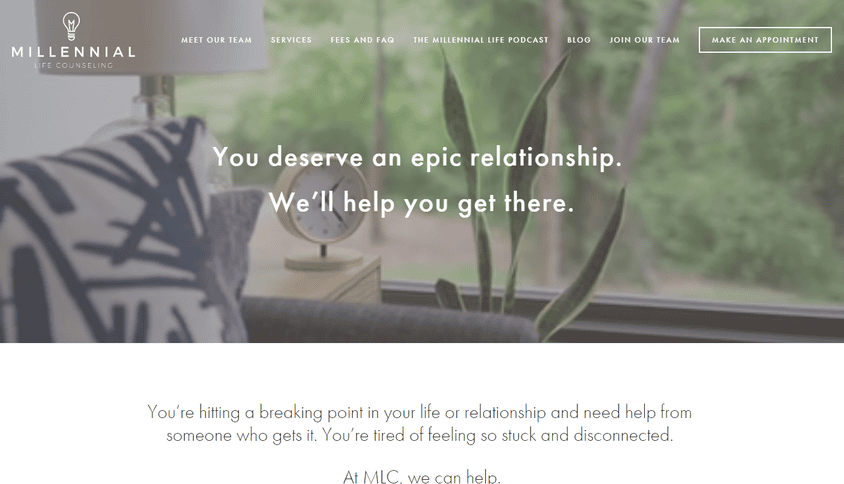
22. Theraphe Men’s Counseling
This counseling website targets a male audience with minimal color, consistent centered alignment of elements, and the inclusion of membership logos. The overall design is tailored to appeal to male site viewers and clients.
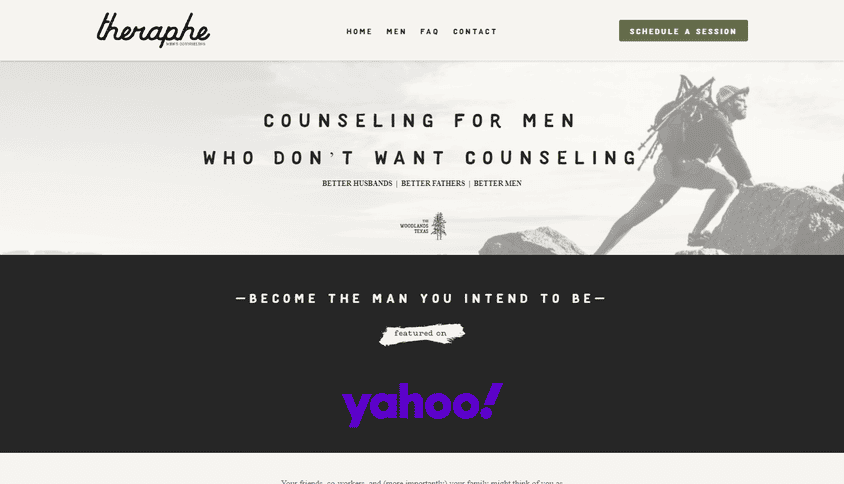
23. Ground Work Play Therapy
Ground Work Play Therapy’s website uses big and bright photos with children, clear call-to-action buttons, icons, and vibrant colors to highlight important sections. The fun yet professional design creates an engaging user experience.
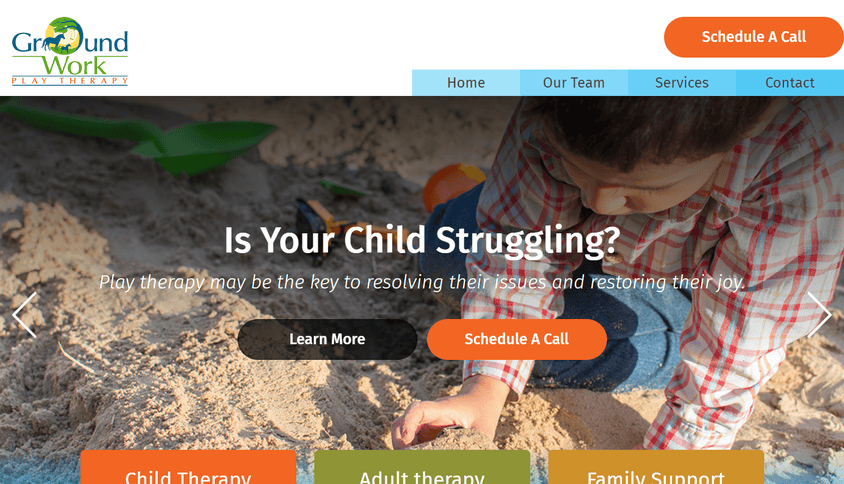
24. Tula Spa
Tula Spa’s website exudes a fashionable feel with beautiful hero section images and effective use of white space. Unique call-to-action buttons further contribute to a visually appealing and user-friendly experience.
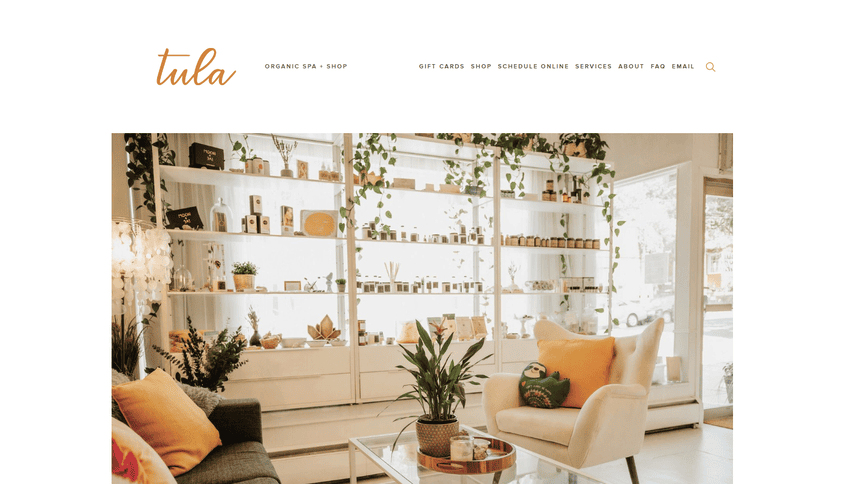
25. City Touch Licensed Massage Therapy
This therapist website employs an elegant color theme, lists therapy service prices on each service page, provides a detailed gift certificates page, and features a carousel of facility images on the about page, contributing to a comprehensive user experience.
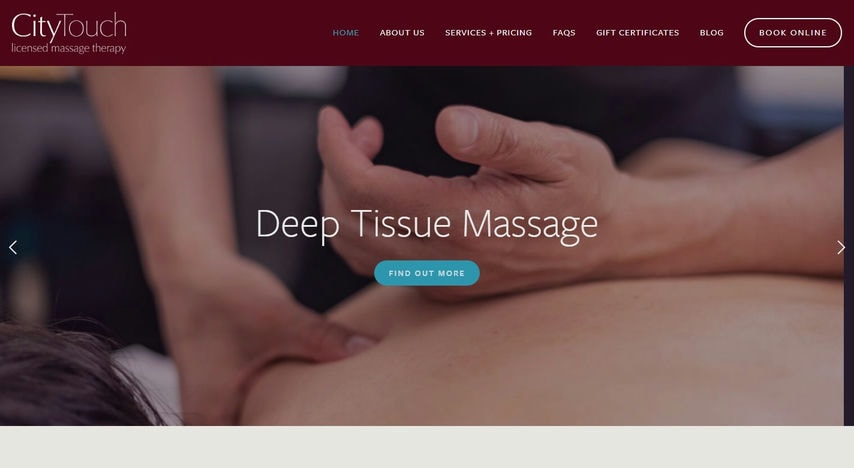
26. North Shore Pediatric Therapy
North Shore Pediatric Therapy’s well-organized content, tailored logo, and heading font for children create an inviting atmosphere. The website effectively caters to its clientele – children, ensuring a user-friendly experience.
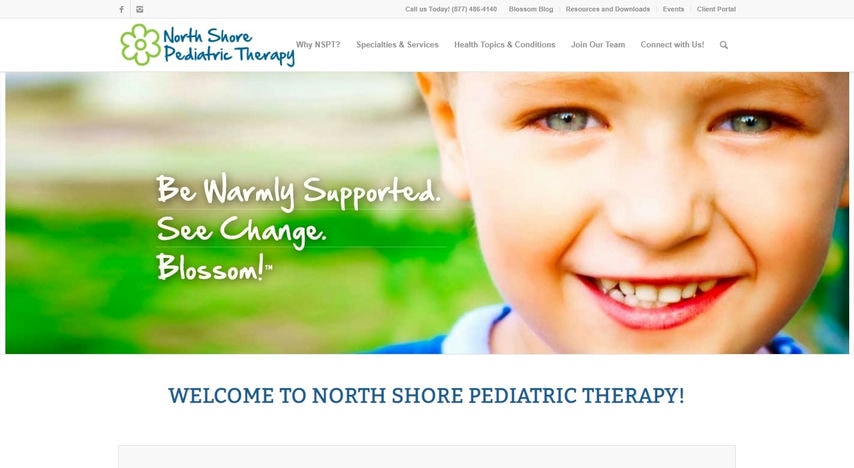
27. Talkspace
Talkspace’s modern and up-to-date website design, consistent use of colors, and effective font variation for easy browsing create a clean overall look and feel. The design aligns with the contemporary nature of their therapy services.

28. Benchmark Physical Therapy
This Physical Therapy website uses nice and large images, creative icons, and large, readable content text for clear messaging. Easy-to-browse inner pages and consistent use of a color palette contribute to an engaging user experience.
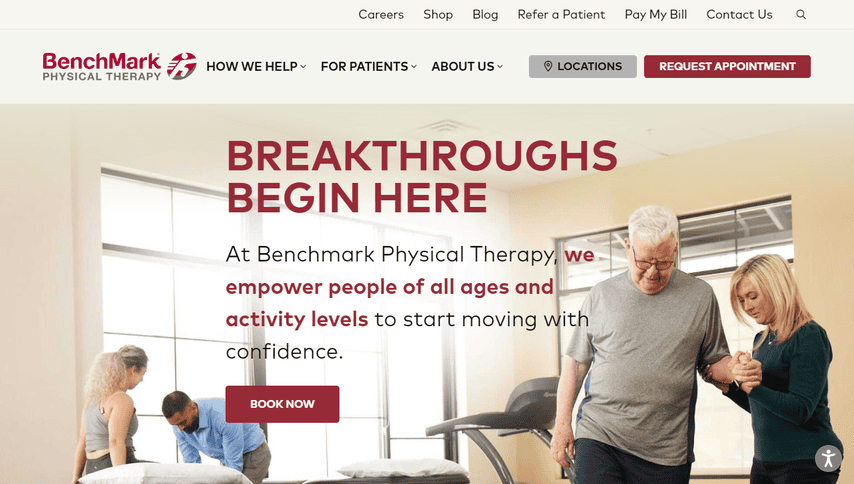
29. Pivot Physical Therapy
Pivot Physical Therapy’s website boasts large, readable fonts with a high-contrast background. The effective combination of red, white, and blue colors enhances visual appeal, often challenging to achieve in web design.
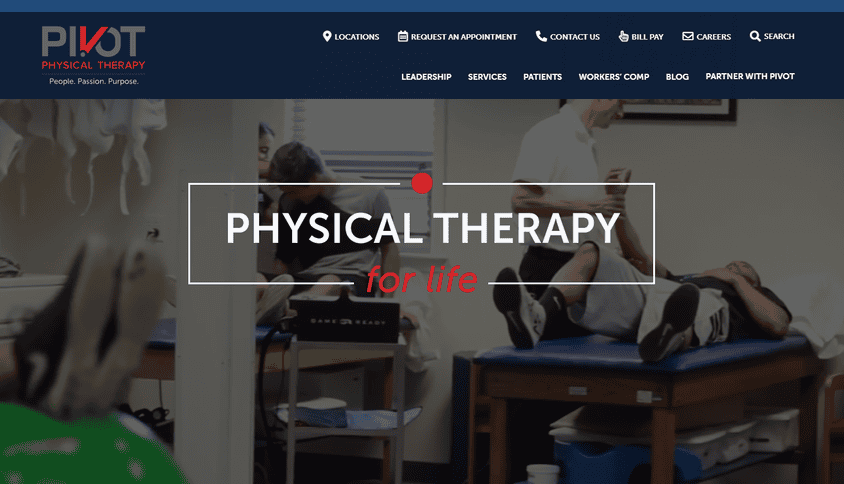
30. USPh Physical Therapy
USPh Physical Therapy’s professional look, well-positioned hero section headings, sticky navigation transition, and updated content contribute to a credible and user-friendly therapist website. The inclusion of statistics adds an extra layer of credibility.
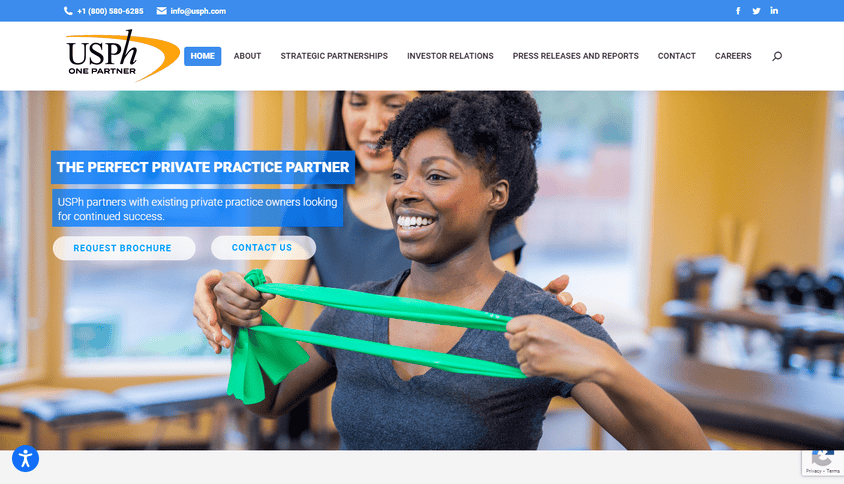
31. Empower Physical Therapy
Empower Physical Therapy’s website stands out with its utilization of large and sharp images, ensuring a visually appealing user experience. The clear and readable fonts contribute to effective communication. Alternating light and dark backgrounds on home page sections enhances content organization, and the inclusion of client reviews adds a layer of authenticity. The “Free Assessment” call-to-action is prominently emphasized, guiding potential clients seamlessly.

32. American Physical Therapy Association
The American Physical Therapy Association’s website demonstrates innovation through the use of diagonal shapes, cleverly aligned with their logo shape. Large heading fonts, gradient colors in the background, shapes, and heading fonts add a modern touch. This top website for therapists showcases a sophisticated design that reflects professionalism and attention to detail.
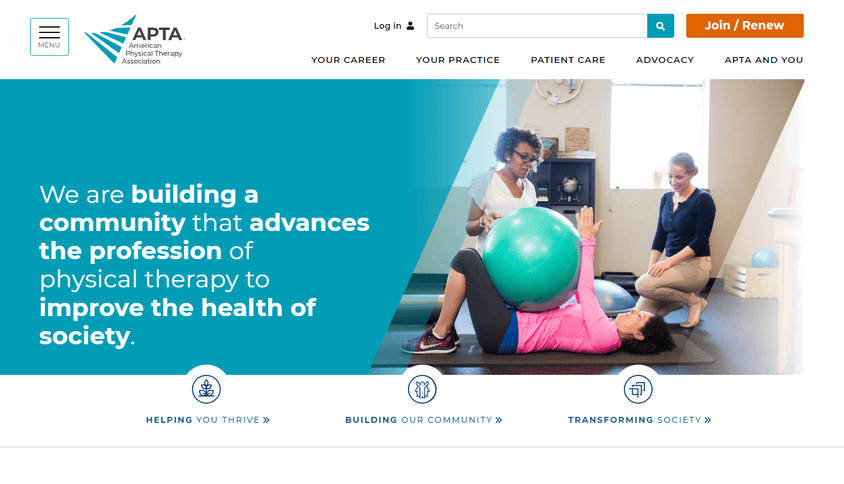
33. Online Therapy
Online Therapy’s website excels with large full-width images and content, creating a visually immersive experience. The use of generous spacing between website elements enhances readability, and a well-organized layout despite the long scroll ensures easy navigation. The inclusion of nice transition animations on scroll and engaging hover effects adds a touch of interactivity.
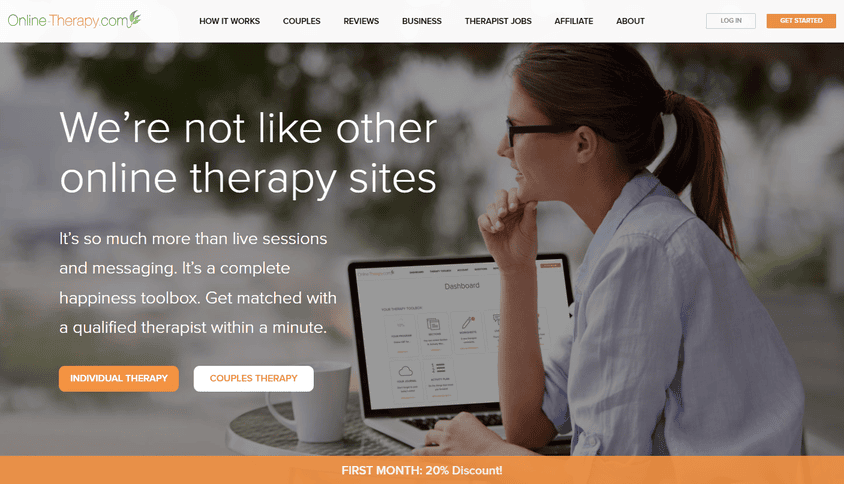
34. Impact Physical Therapy
Impact Physical Therapy’s website distinguishes itself with bold colors, large fonts, and a service-related video background in the hero section. The inclusion of certification logos and embedded Google reviews adds credibility. Actual images of people and facilities contribute to a transparent representation of their services, making it one of the best therapist websites.
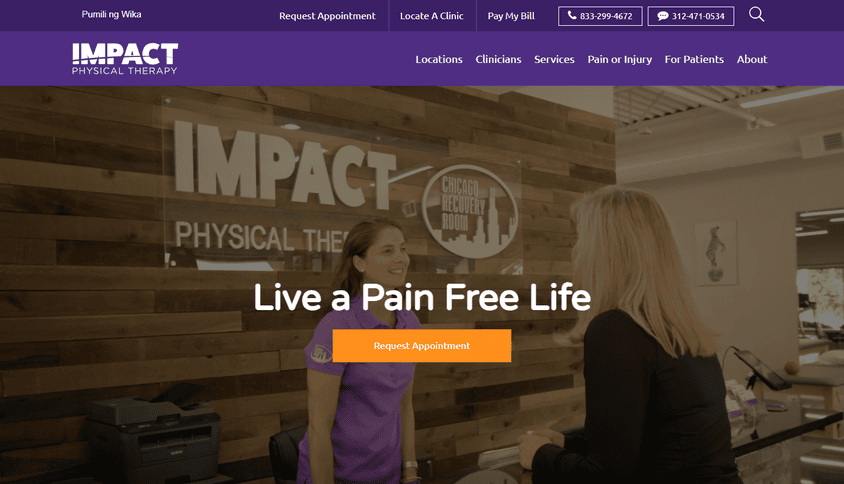
35. Kristin Zeising
Kristin Zeising’s therapist website embodies simplicity and elegance with clean fonts and relaxing colors. Embedded videos within inner pages enhance engagement and provide valuable insights into the therapist’s approach. The updated content and a well-designed logo reflect a soft, vibrant, and friendly nature, creating a welcoming online presence.
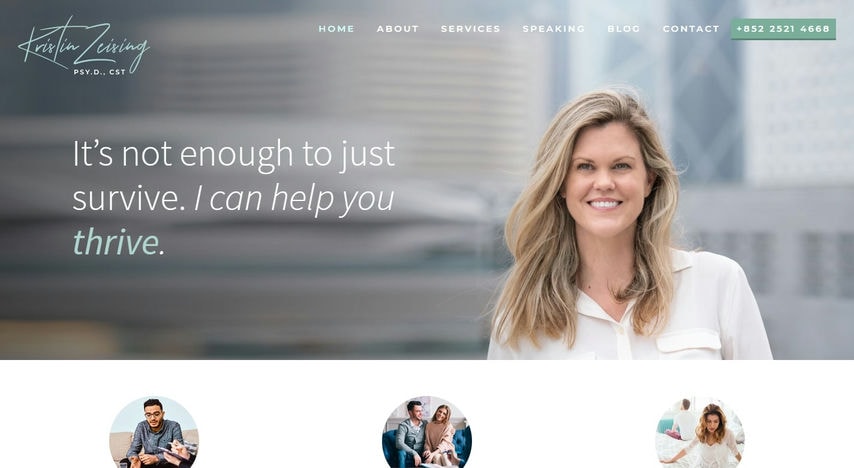
Engaging Content for Therapist Websites
Personal Branding
Personal branding humanizes therapists and sets them apart. An “About Me” section that conveys the therapist’s personality and approach helps build a connection with potential clients.
Testimonials and Success Stories
Client testimonials and success stories are powerful tools for building trust. Real-life experiences shared by clients showcase the therapist’s effectiveness and contribute to a positive online reputation.
Blog Section
A blog section provides a platform for therapists to share insights, expertise, and relevant information. Regularly updated content not only engages visitors but also improves search engine optimization (SEO).
SEO Strategies for Therapist Websites
Keyword Research
Thorough keyword research is fundamental to a therapist’s online success. Identifying and incorporating relevant keywords in the website’s content aids in improving search engine rankings.
On-Page Optimization
Optimizing on-page elements, such as meta tags, headers, and content, is crucial for search engine visibility. Strategic use of keywords enhances the website’s chances of being discovered by potential clients.
Local SEO
For therapists targeting a specific geographic area, local SEO tactics are essential. Optimizing for local keywords ensures visibility among potential clients in the therapist’s vicinity.
Importance of Social Media Integration
Social media integration is a vital component of a therapist’s online strategy in today’s interconnected world.
Connecting with Clients
Social media platforms provide therapists with a unique opportunity to connect with clients on a more personal level. Engaging content, such as mental health tips, can foster a sense of community and trust.
Expanding Reach
By integrating social media, therapists can extend their reach beyond the confines of their website. Sharing valuable insights and interacting with the audience on platforms like Facebook, Instagram, or Twitter enhances visibility and attracts a diverse audience.
Ensuring Accessibility for All
ADA Compliance
Ensuring that therapist websites comply with the Americans with Disabilities Act (ADA) is essential. ADA compliance guarantees that the website is accessible to individuals with disabilities, reinforcing the commitment to inclusivity.
Inclusive Design
Designing with inclusivity in mind is equally important. A website designed to accommodate diverse needs ensures that all users, regardless of abilities, can navigate and engage seamlessly.
The Role of Call-to-Action (CTA)
A well-crafted Call-to-Action (CTA) is a crucial element that guides visitors toward meaningful interactions.
Encouraging Contact
Strategically placed CTAs prompt visitors to initiate contact. Whether through a contact form, email, or phone call, encouraging communication is pivotal for building connections.
Scheduling Appointments
CTAs facilitating appointment scheduling streamline the process for potential clients. An easy-to-use scheduling system can significantly enhance the user experience.
Tracking and Analyzing Website Performance
Monitoring website performance is key to understanding user behavior and making informed improvements.
Google Analytics
Google Analytics is an invaluable tool for therapists. It provides insights into website traffic, user demographics, and popular content, enabling data-driven decisions for optimization.
Continuous Improvement
Regularly analyzing performance data allows therapists to identify areas for improvement. This commitment to continuous enhancement ensures that the website evolves to meet the changing needs of both therapists and clients.
Common Mistakes to Avoid
Cluttered Design
A cluttered website overwhelms visitors and detracts from the user experience. Simplifying the design ensures that essential information is easily accessible.
Slow Loading Times
Slow-loading websites frustrate users and negatively impact SEO. Optimizing website speed is crucial for retaining visitors and improving search engine rankings.
Lack of Contact Information
Clear and easily accessible contact information is fundamental. Failing to provide contact details can hinder potential clients from reaching out.
Future Trends in Therapist Website Design
As technology evolves, therapists should stay attuned to emerging trends that can shape the future of their online presence.
Virtual Therapy Platforms
The rise of virtual therapy platforms suggests a future trend in integrating these solutions into therapist websites. Offering online therapy services can cater to clients’ evolving needs.
AI-Powered Assistance
Artificial intelligence may play a more significant role in providing personalized assistance on therapist websites. Chatbots and virtual assistants can enhance user experience and engagement.
Let Guerrilla Local Design Your Therapist’s Website
If you’re seeking a Therapist Web Design Agency that understands the intricacies of showcasing Therapist Services, Guerrilla Local is your answer. Our dedicated web development team delves into your company’s vision and services, crafting a custom design that reflects your uniqueness. Engage visitors with a site beyond aesthetics – Contact Us to discuss how we can elevate your online presence.
Conclusion
In conclusion, crafting the best therapist website design is an ongoing process that requires attention to detail and a commitment to meeting the evolving needs of both therapists and clients.
By integrating social media, ensuring accessibility, utilizing effective CTAs, and embracing future trends, therapists can create a compelling online presence that fosters connections, builds trust, and ultimately enhances their practice.
FAQs
How can a therapist benefit from a professional website?
Professional websites enhance a therapist’s online presence, attracting clients and building credibility.
Is it necessary to hire a professional web designer?
While it’s beneficial, therapists can use DIY tools. Professional designers ensure a polished, customized look.
What role does SEO play in therapist website success?
SEO boosts visibility on search engines, helping therapists reach a broader audience.
How can social media enhance a therapist’s online presence?
Social media integration expands a therapist’s reach and fosters connections with potential clients.
Are there any free tools for DIY website improvement?
Yes, numerous free tools and resources empower therapists to enhance their websites independently


